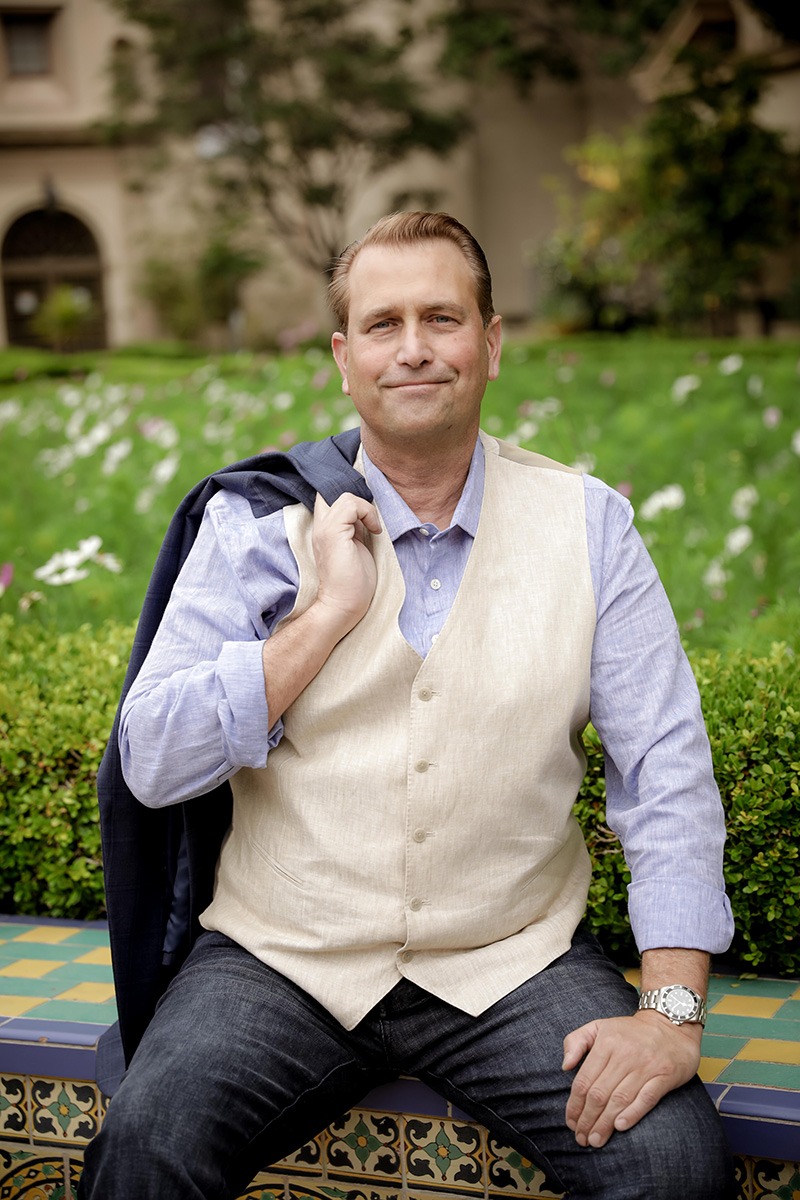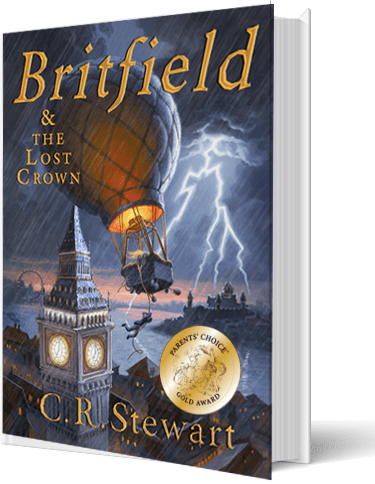Available In All Formats
Britfield & The Lost Crown is available in
Softcover, Hardcover, Audiobook and Ebook.
Author

Meet The Author
Born in Newport Beach, California, C. R. Stewart has 20 years of experience in writing fiction, non-fiction and movie screenplays. He is a prolific writer, producer, creativity specialist, international consultant and prominent speaker.
Experience
Founder of the prestigious Devonfield, a comprehensive company dedicated to the highest quality in film production, publishing and education, Chad’s areas of expertise are writing, film and media production, global strategy, and international marketing. He received a Bachelor of Arts in British Literature and European History from Brown University; earned an M.B.A. from Boston College; and is pursuing a Master of Science in Advanced Management and a PhD in Technology and Strategy at Peter F. Drucker and Masatoshi Ito Graduate School of Management, Claremont Graduate University.
Interests and Fields of Knowledge
Now based in San Diego, C.R. Stewart is a strong supporter of education and the arts and is an adjunct professor at Fermanian School of Business, Point Loma Nazarene University; and is Past President of the Board of Directors of the San Diego Ballet. Chad enjoys writing, world travel, reading, riding, swimming, sailing, tennis, and the Arts.
FAQ
It started as a sketch I did of a hot air balloon with a young boy and girl trapped inside. From this simple drawing sprang the entire concept and story for Britfield. I also liked the idea of adventure, exploration and freedom—seeing an extraordinary country for the first time: moving from place to place, enjoying spectacular scenery and exciting events, learning new things, meeting people, making friends and having hope for a better future. I like that not everything is what it seems. Not everyone is who you think they are: the simple often can become great, the great often turn out to be simple. Everyone has a unique story.
The story plays out all over England, starting in Yorkshire, through the Midlands, Oxford, Windsor, London and many other locations. All the locations, streets and buildings are places I have visited and remember vividly. I hope that the readers of Britfield will not only enjoy the book but also have a chance to visit England, explore the different locations and fall in love with this breathtaking country the way I did.
I have always loved the England—its complex history, dynamic culture, wonderful people and beautiful countryside are filled with a rich tapestry of amazing stories. I also lived in England for almost a year and have been back to visit over thirty times. I have visited Hadrian’s Wall between Scotland and England, walked the haunting moors by the Brontes’ home in Haworth, wandered the streets of London, toured Dicken’s house, explored Thomas Harding’s Dorset and made my way down to the Cornish shores of Fowey, where Daphne du Maurier wrote her romantic suspense novels. All these experiences have deeply influenced my life and my writing.
Britfield & the Lost Crown took me over four years and 2500+ hours to write and edit.
Right now, I’m planning on having at least five books. Britfield & the Rise of the Lion, Book II is finished and takes place in France. Book III will take place in Italy. We are still planning Book IV and Book V. With each book, Tom and Sarah will be one year older.
Absolutely. The books are written visually and are perfect for a screen adaptation.
There are many, but here are a few. I enjoy Charles Dickens and his ability to take a Shakespearean cast of characters and seamlessly weave them through his stories. I have been heavily influenced by C. S. Lewis, his amazing depth and creativity as an author. Jane Austen captured the aristocracy, the intrigue, the forced etiquette and the psychological games and hypocrisies of the upper classes. The Bronte sisters, Charlotte, Emily and Anne, wrote mysterious, romantic gothic novels that are powerful, moving and deep. Thomas Hardy took simple characters living in a rural setting and created complex, multilayered stories.
I enjoy biographies and history, which has obviously influenced my writing. I like going deep into a subject, learning the details of people’s lives, how they lived, what they overcame and how they succeeded. I just finished two extraordinary biographies–Mary, Queen of the Scots by Antonia Fraser and The Life of Elizabeth I by Alison Weir—and I highly recommend both books. The history is fascinating and what these two women endured is stunning. The truth is often far more dramatic than fiction, which is why I enjoy weaving history into my novels.
I truly enjoy writing, but it’s extremely demanding. It takes an enormous amount of time and dedication to produce a finished work. I pace myself, and I’m careful about selecting each project. With that said, I finished a feature-length screenplay for a psychological spy thriller Devonfield Productions may produce as a feature film. Last year. I finished another screen play, which is a romantic comedy that takes place in Massachusetts. I’m also currently writing a play based on the extraordinary friendship between C. S. Lewis and J. R. R. Tolkien, which I hope to stage in 2019/2020. Ironically, I began writing screenplays before I started writing novels, but over a decade passed before I got back to it. When I did, it was a fun and challenging experience. I think scriptwriting is a great way to learn structure and storytelling: it is concise with certain mechanisms (plot points) expected on specific pages and you never waste words, so it helps you to become a disciplined writer who can stay focused on the story. It was from this training that I was able to write Britfield & the Lost Crown; although some of the descriptions or dialogue changed throughout the many drafts, the structure and framework never did. I also think it’s important to challenge yourself, try different writing styles and mix it up. I wrote my spy thriller screenplay as a break before I completed my final edit on Britfield & the Rise of the Lion, Book II. The process helped me look at things differently and refine my skills as a writer.
It’s different for everyone, but I write best in the early morning. Once I start creating or editing a book, I will finish it, whether it takes eight weeks or eight months—I stay with it until it’s complete. For me, the best way to write is uninterrupted, in a quiet place. Just start and keep going until you are finished. Everyone has their own style—what works best for them. I’ll start early in the morning, go for about three or four hours, take a break: working out, running or swimming. Then I’ll have lunch, rest and go back to writing for another four or five hours. By five or six o’clock in the evening, I’m exhausted and finished for the day.
Story is everything. It can be simple or complex, but it must be interesting and well told. Find a unique story and start writing. First create your structure: beginning, middle and end. It’s easier when you think about the story in chapters: where’s the book going, what happens next and how will it end? Develop your characters and know them well—give them depth and obstacles that they must overcome. Do your research and master the subject you’re writing about. Also, read. Enjoy reading and understand what’s out in the market. Find writers you like and learn from them: how they tell a story, the way they structure or pace their narrative, how they describe things. Analyze these books and figure out what makes them interesting or compelling—why they’re successful or why they work as a novel. You never want to copy a style or another writer, but it’s essential to study the literary world you want to enter. If I were a painter, I would study other painters. If I were a composer, I would study other composers. It’s very important to develop your own style and what makes you unique, but this will come with time and experience.
Remember, nothing happens overnight. It takes commitment, discipline and endurance to produce an engaging and inspiring novel. To write and finish a book, you must first begin and spend time with it. Don’t worry about your first draft; just get your ideas and words onto paper (or the computer). Challenge yourself each day to produce a certain amount, perhaps two or three new pages. If you’re stuck on the next chapter, but you know what happens in another section, then jump to that scene. Just keep writing. If you can’t think of anything new, then start editing what you’ve already written, but just keep writing. This is the discipline and commitment needed to finish a book. However, it’s one thing to create your story, structure, characters and a compelling narrative; it’s another to edit. They say that writing is 10% and editing is 90%. I find this relatively accurate. The more you edit, the better your story becomes; the more you edit, the more polished your writing becomes. Nevertheless, there is a time when you must finish and let it go, so you can move onto your next story. Most importantly, have fun. Write because you enjoy it.

Available In All Formats
Britfield & The Lost Crown is available in
Softcover, Hardcover, Audiobook and Ebook.
Read The First Two Chapters
Enter your email address to be notified as soon as this item becomes available